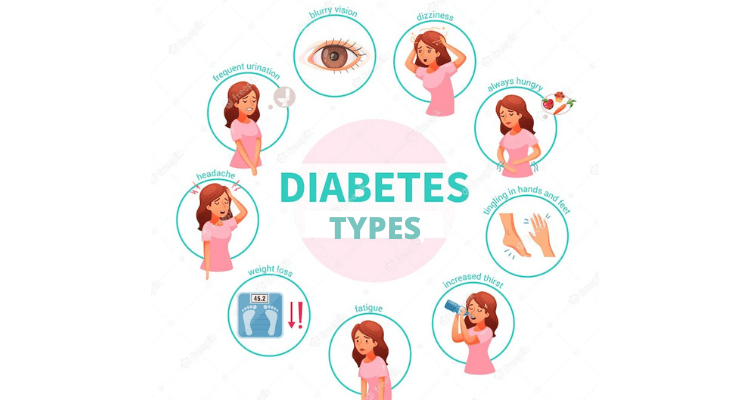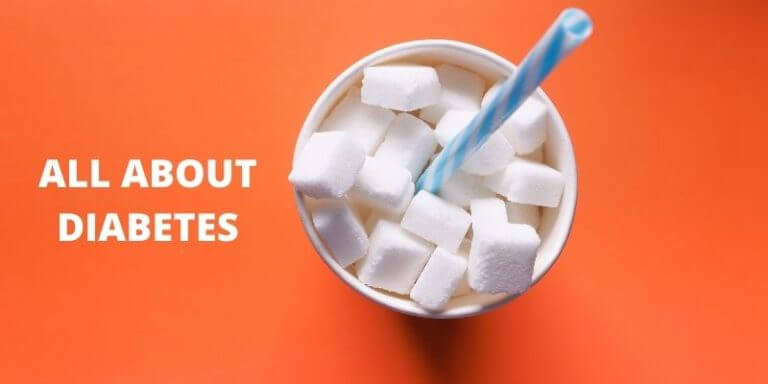Can Eating Late At Night Cause Diabetes?

In a world where our hectic schedules mainly determine our meal timings, it has become commonplace to grab a late-night snack. But have you ever thought this seemingly regular habit could negatively affect your health?
Numerous studies point to a connection between eating patterns and the chance of acquiring diabetes. Because eating late at night can throw off the body’s usual rhythm, affecting glucose balance and insulin sensitivity.
This is where the question arises: Can eating late at night cause diabetes?
Let’s find out through this blog.
UNDERSTANDING DIABETES
Diabetes is a chronic medical condition marked by high blood sugar levels resulting from –
- the body’s inability to produce enough insulin or
- to effectively use the produced insulin.
Diabetes Comes in Two Primary Forms
- When the immune system incorrectly targets and kills insulin-producing cells in the pancreas, it gives rise to an autoimmune condition called type 1 diabetes.
- Type 2 diabetes, even though more common, occurs when the body starts to resist insulin. It is more of a metabolic disease.
Common Causes of Diabetes
- Obesity
- Stress
- Genetics
- Bad lifestyle
- Lack of exercise
- Sedentary behaviour
- Unhealthy food habits
WHAT ARE LATE-NIGHT EATING HABITS?
Eating late at night often means having a filling meal or snacks near bedtime, usually before a few hours of sleeping. This behaviour often includes consuming foods high in fats, sweets, or carbs.
Why do people eat late at night?
This could be because of several reasons.
- To relieve stress and anxiety
- Social gatherings and events like late dinners or parties.
- Busy work schedules with irregular shifts or lengthy hours.
- It could be because of behavioural habits like late-night binge-watching, Instagram scrolling, or chatting.
What does Ayurveda say about late time eating?
Ayurveda doesn’t see late-night eating in a very good light.
Why?
Because it interferes with the body’s regular cycles and causes digestive problems.
- Ayurveda suggests synchronizing our eating patterns with the day’s natural cycles. The biggest meal should be taken in the middle of the day, when the digestive fire, or Agni, is at its peak.
- Our digestive fire (Agni) naturally decreases as the sun sets, which can result in incomplete food digestion and the buildup of ‘Ama’ (toxins) in the body.
- Eating late at night can also alleviate Kapha, which may result in weight gain.
- Thus, ayurveda suggests light and easily digestible meals before sunset to balance Agni and Doshas.
LINK BETWEEN LATE-NIGHT EATING AND DIABETES
Several studies have examined the connection between diabetes and eating late at night.
Let’s try to understand them.
- A study discovered a connection between higher fasting glucose levels and eating a substantial amount of daily calories in the evening. Eating these foods close to bedtime causes a blood sugar surge that can impair the body’s capacity to properly utilize and break down glucose.
- Another experiment suggested that eating dinner early enhances 24-hour blood glucose levels and lipid metabolism. This means that our body finds it difficult to properly break down glucose during the night compared to the daytime, raising blood sugar levels.
IMPORTANCE OF MEAL TIMING
Our body is guided by our biological clock (the circadian rhythm). These rhythms are driven by sunlight and moonlight. This means our bodies are naturally hardwired to wake up and slow down with the sunrise and sunset.
The circadian rhythm helps control many body functions, including metabolism. Our body naturally slows the metabolism at night to promote rest and recuperation, and it typically becomes more active during the day to support daily activities.
Hence, to remain healthy, it is vital to eat on time!
Unusual eating habits disturb the circadian cycle, resulting in metabolic imbalances and issues like weight gain.
How is Ayurveda effective in improving our daily meal practices?
According to Ayurveda, the daily routine, or ‘Dincharya’, is based on coordinating activities with the day’s natural energy flow, i.e., circadian rhythm. The day is divided into Vata, Pitta, and Kapha periods according to their dominant doshas.
- The major meal should be consumed around midday (Pitta period) when the digestive fire (‘Jatharagni’) is at its highest.
- During evenings (the Kapha period), when metabolism naturally slows down, having a lighter evening meal is preferable.
- Ayurveda also emphasizes following specific dietary guidelines, underscoring the value of eating in a calm and comfortable environment, facilitating healthy digestion and nutrient absorption.
- Additionally, Ayurveda discourages overeating or skipping meals since it upsets the delicate dosha balance.
Following the Ayurveda guidelines regularly and mindfully promotes general health by enhancing energy utilization and digestion.
HEALTHY LATE-NIGHT SNACKING
While choosing foods to eat late at night might be challenging, Ayurveda guides options that are less likely to cause blood sugar fluctuations.
Consume foods that maintain energy levels over time without spiking your doshas, such as
- Fruits like apples or berries
- Warm fennel or coriander tea
- Nuts like walnuts and almonds
- Warm Milk with a pinch of turmeric and a dash of cinnamon.
But remember that moderation is essential. Refrain from eating in excess, and be aware of your body’s hunger and fullness cues. Restrict your intake of stimulants and coffee because they can disrupt your body’s normal sleep cycle. Choose herbs with relaxing properties, such as Ashwagandha, for better sleep and digestion at night.
So, you see how eating late at night not only interferes with circadian cycles and glucose metabolism but also leads to weight gain and brings you 100 steps closer to a disease like diabetes!
Diabetes is very much preventable! The solution is to promote a health-focused, holistic mindset with appropriate eating practices throughout the day, keeping a healthy weight, and getting regular exercise.
We can all choose better options by emphasizing a balanced lifestyle and protecting our long-term health and well-being. Don’t you agree?






Helpful information Dr. Bhupesh 👍
Helpful information Dr. Bhupesh 👍
Please always share this types informations
Thanks..